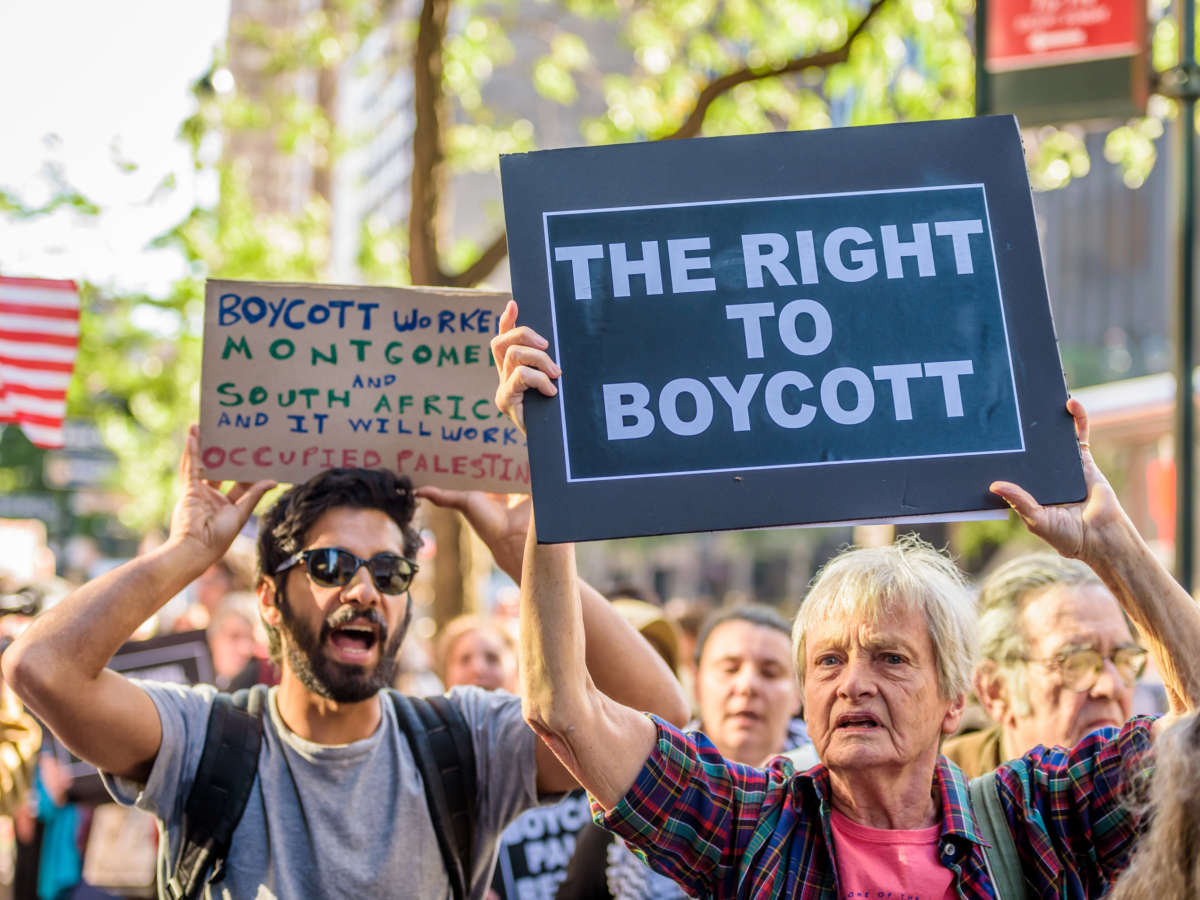

Federal appeals court ruled that state laws that punish contractors for participating in boycotts of Israel do not violate free speech rights. Advocates claim that this ruling will unconstitutionally chill all speech in favour of justice for Palestinians.
Arkansas, 2017. passed a lawThe ban on state contractors taking part in the Boycott, Divestment and Sanctions movement (BDS)., which seeks to exert nonviolent pressure on the government of Israel to end the country’s apartheid system and its violent displacement of Palestinians. The legislation requires companies with contracts with the state that they sign a pledge not to take part in the movement or to reduce their fees by at least 20 percent.
Arkansas Times, A newspaper located in Little Rock sought to contract with an academic institution in the state. refused to sign a pledgeIt would adhere to the new standards imposed by the state.
The paper tried to sue the state for violating the law. However, the case was dismissed in a district judge setting and won an appeal after a panel of three judges from the Eighth District U.S. Circuit Court of Appeals ruled that the law violated free speech rights of companies, and organizations. However, the Eighth District Court issued an entire order on Wednesday en banc ruling, reversing the original appellate decision.
The full court refused to recognize the free speech components of the case, claiming that economic and commercial decisions “are invisible” and “not inherently expressive” conduct — and that therefore, the law was not in violation of First Amendment speech rights.
“It’s a horrible reading, and it’s very inaccurate,” said Abed Ayoub, legal director of the American-Arab Anti-Discrimination Committee, adding that the ruling “will flip the First Amendment on its head.”
“It’s shocking to see we’re living in a time where our courts are deteriorating our rights and abilities to express ourselves,” Ayoub said.
Palestine Legal also condemned the ruling. an organization thatProtects the civil rights and constitutional rights for advocates for Palestine in America
“Boycotts are a powerful tool for seeking justice, as [previously] recognized by the Supreme Court,” the organization wrote. “Today’s decision ignores that history and precedent, treating Arkansas’ anti-BDS law as a restriction on purely commercial conduct that carries no political message.”
“This decision sets a dangerous precedent for anyone interested in seeking social, political, or economic change,” the group added.
In her dissenting opinion, Eighth Circuit Court Judge Jane Kelly wrote that the purpose of the Arkansas law appeared to be more political than economic — meaning that claims that the law has nothing to do with free speech are false.
“By the express[ed] terms of the Act, Arkansas seeks not only to avoid contracting with companies that refuse to do business with Israel,” Kelly wrote. “It also seeks to avoid contracting with anyone who supports or promotes such activity.”
Arkansas’s law prohibiting state contractors from exercising their speech rights through boycotts is just one of hundreds of bills proposed in recent yearsTo similarly target individuals or organizations that support Israel’s abuses of Palestinians. Over the past seven decades, 245 bills were proposed to redefine antisemitism to include criticisms against Israel or to limit boycotts against the country to support Palestinian rights. 52 of those bills have been passed into law.
